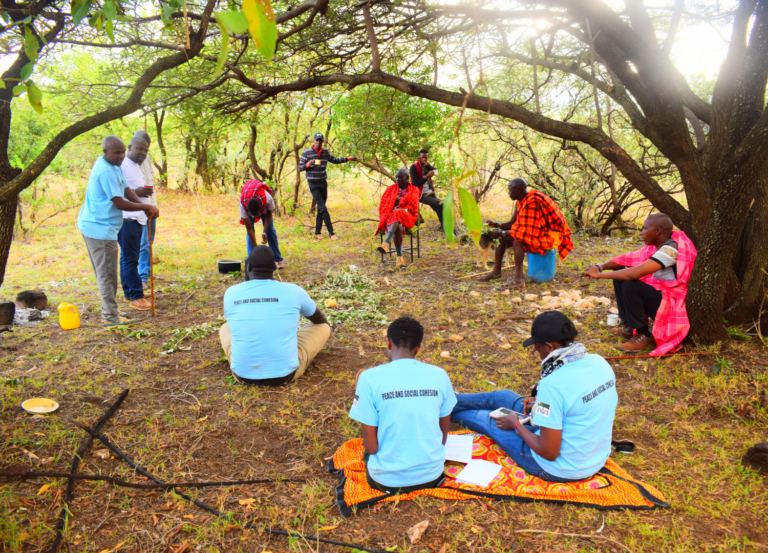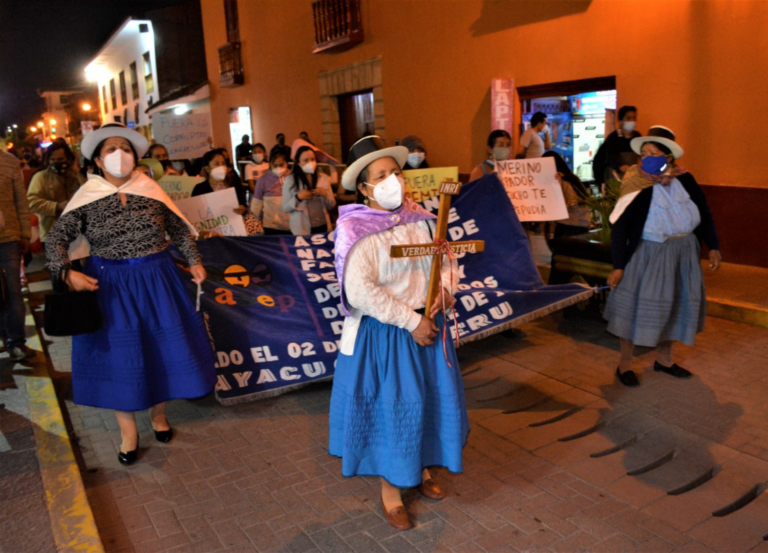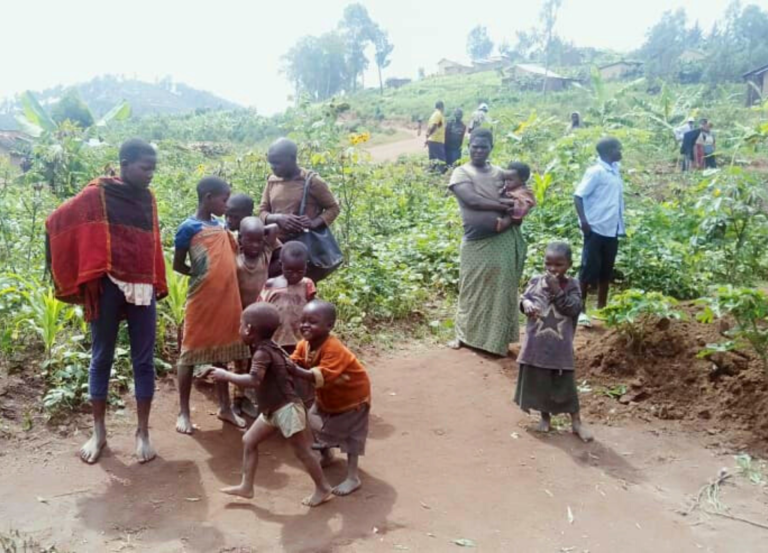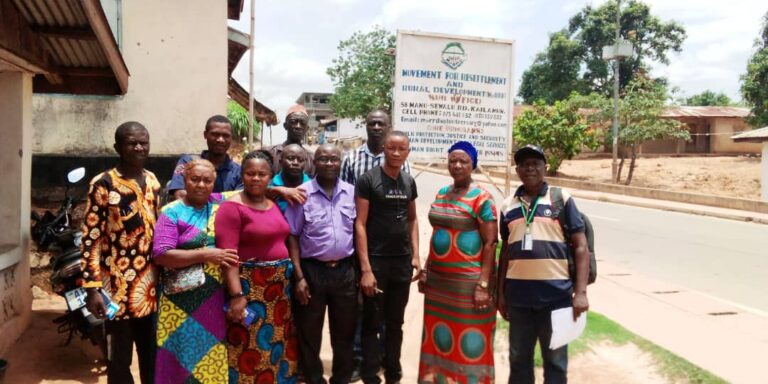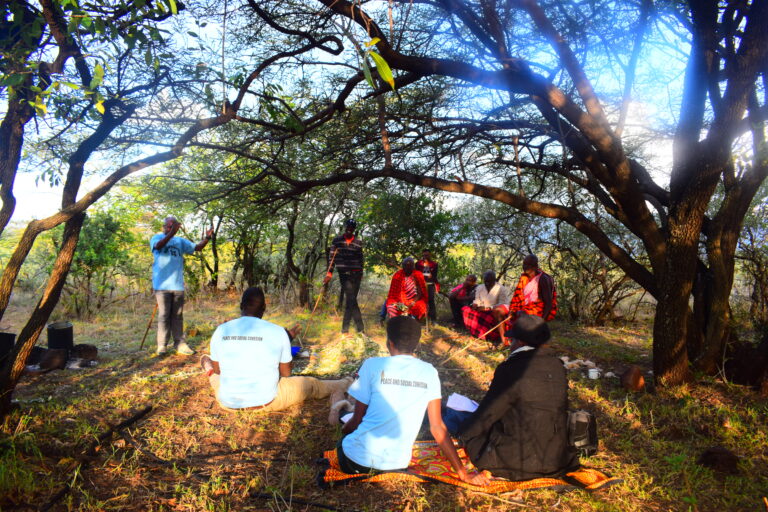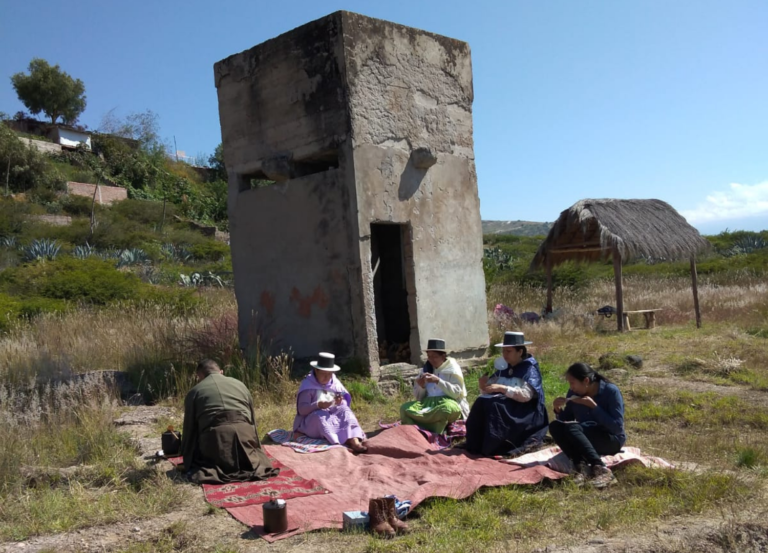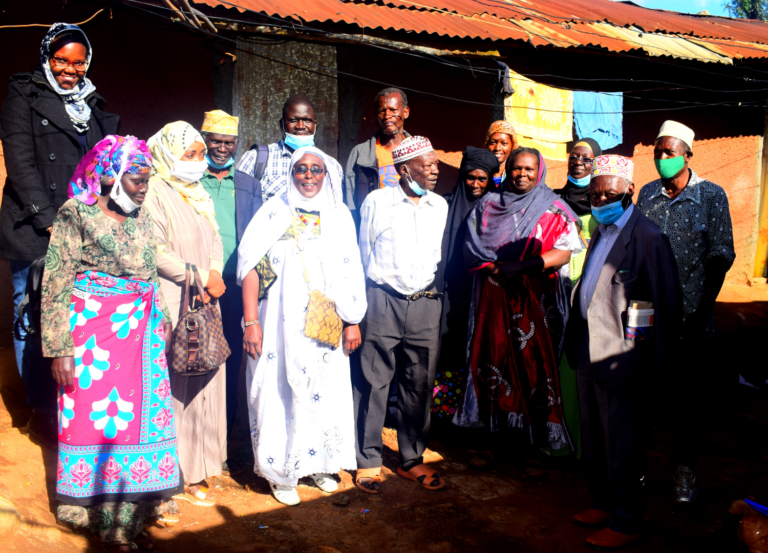Engaging Indigenous Communities in Transitional Justice Processes
Formal transitional justice processes often neglect nuanced traditional justice mechanisms which incorporate restoration and retributive justice dimensions, and in effect fail to benefit from the reconciliation goal embedded within these processes. In some instances, transitional justice processes often overlook indigenous communities, failing to provide adequate justice that is meaningful and culturally relevant to these communities. Indigenous communities understand these localized dimensions of resolving conflict and addressing issues amongst communities and groups who must live harmoniously alongside each other after resolving conflict.
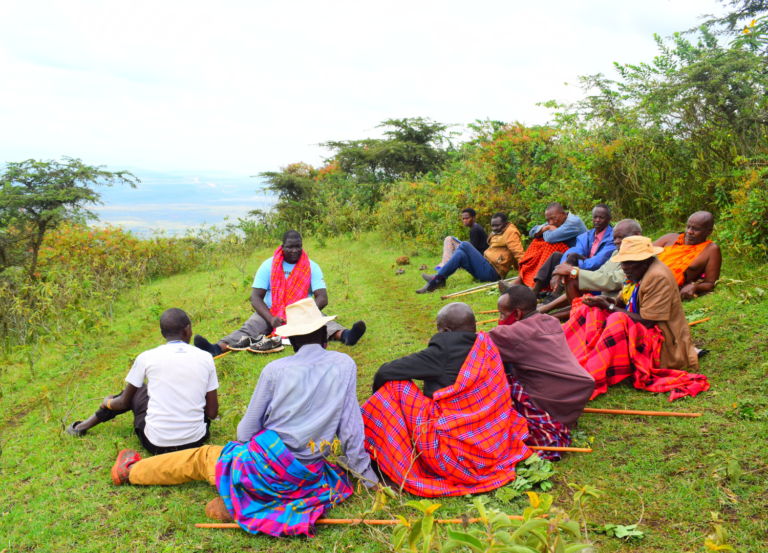
Context
Over the past three decades, the need to address the rights of indigenous communities in post-conflict contexts has become more apparent, and the potential for transitional justice processes to strengthen indigenous peoples’ rights has gained some recognition among indigenous rights advocates as well as transitional justice experts and practitioners. Indigenous people are often the most impacted by conflicts and periods of political repression, as they are often displaced by violence or fall victim to warring factions seeking to control their resource-rich territories; they face violence and discrimination because of their cultural identity or language; and they may be scapegoated or perceived as enemy-sympathizers by powerful groups, due to racism, mistrust and lack of understanding of indigenous cultures. To this day indigenous communities suffer continued social and economic marginalization and remain among the most vulnerable members of society. To address this, over the past two decades international human rights jurisprudence and discourse have developed significant standards outlining and interpreting the scope of indigenous peoples’ collective rights, including the right to self-determination and the right to land, territory, and natural resources.
Project Details
To address this need, GIJTR launched this project which examines ways of engaging indigenous communities in transitional justice processes that are rooted in traditional cultures and practices, including community redress, indigenous restorative justice mechanisms, reparations to nature, culture-specific truth-telling procedures, reconstruction of the social fabric, restitution of balance between ethnic groups and other modes of reconciliation practiced by indigenous communities across the world. The project seeks to identify ways in which these indigenous communities could advocate for truth, justice, and reconciliation processes based on violations that they have suffered.
Through desk research and interviews with local partners, community leaders and grassroots communities in Kenya, Nigeria, Morocco, Rwanda, Sierra Leone, Colombia, Peru and Guatemala, Phase I examined the way in which transitional justice processes have engaged indigenous communities and addressed or failed to address their needs. A preliminary set of findings and recommendations was summarized in a final report on Africa and Latin America. For Phase II of the project, in order to further develop this research and include a wider overview of current challenges in addressing the needs of indigenous communities in transitional justice across the globe, Consortium partners propose to expand the reach to include at least three cases from the Asia-Pacific, two additional cases from Africa, and two additional cases from Latin America.
Project Objectives
Objective 1: Produce a comparative study that examines the approaches and responses to transitional justice processes in Africa, Latin America and the Asia-Pacific and the way they have incorporated or failed to include mechanisms to engage indigenous communities.
Conduct research and produce reports on engaging indigenous communities and identifying ways in which they can advocate for truth, justice and reconciliation processes based on violations that they have suffered in Africa, Latin America, and the Asia-Pacific.
Objective 2: Generate interregional dialogue amongst transitional justice scholars, experts, practitioners, indigenous communities and civil society from Africa, Latin America and the Asia-Pacific about the challenges and opportunities in engaging indigenous communities in transitional justice processes.
Plan and implement a virtual roundtable engaging stakeholders from Latin America, Africa, and the Asia-Pacific in interregional discussions on lessons learned and best practices in engaging indigenous communities and identifying ways in which they can advocate for truth, justice and reconciliation processes based on violations that they have suffered in Africa, Latin America, and the Asia-Pacific.
Objective 3: Produce regional reports for Africa, Latin America and the Asia-Pacific about engaging indigenous communities in transitional justice processes and develop guidelines for recommendations to address the needs of these communities in truth, justice and reconciliation processes.
Produce a summary report consolidating research that shares examples from Latin America, Africa, and the Asia-Pacific and identifies gaps in practice and policies, while offering conclusions and recommendations.
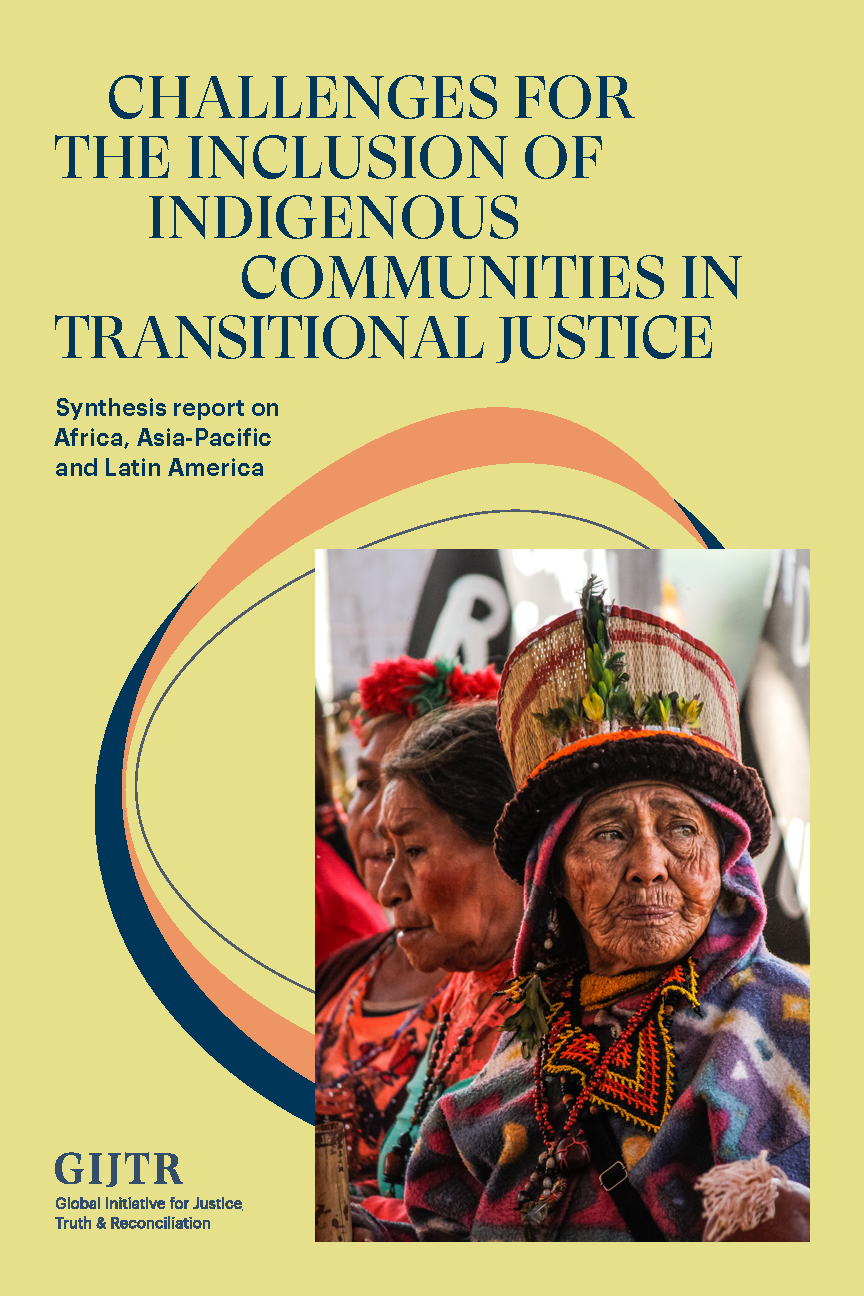
Challenges for the Inclusion of Indigenous Communities in Transitional Justice
This report summarizes findings, learned lessons and recommendations regarding the participation of indigenous peoples in transitional justice processes based on case studies and field research conducted in Australia, Brazil, Chile, Colombia, Democratic Republic of Congo, Guatemala, Indonesia, Kenya, Morocco, Nepal, Nigeria, Peru, Philippines, Rwanda, Sierra Leone and South Sudan. The cases examined call for a decisive integration of the framework of Indigenous peoples’ rights and Indigenous leadership within transitional justice, decolonizing its approaches, broadening its historical perspective, and enhancing its capacity to shape profound political transformations in modern states.
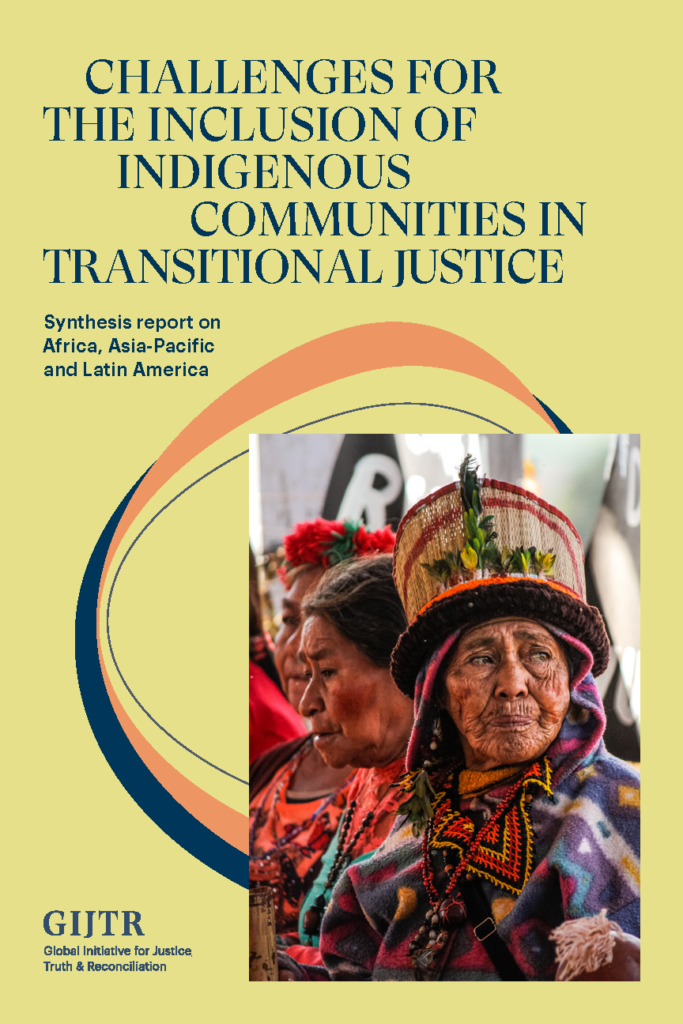
Challenges for the Inclusion of Indigenous Communities in Transitional Justice
Synthesis report on Africa, Asia-Pacific and Latin America
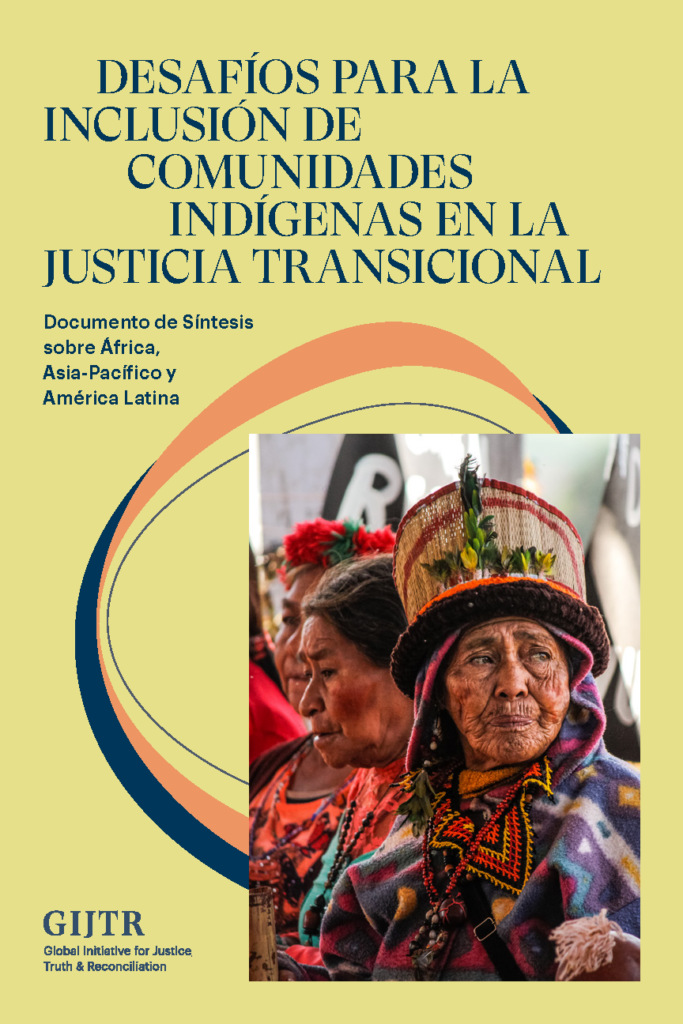
Desafíos para la Inclusión de Comunidades Indígenas en la Justicia Transicional
Documento de Síntesis sobre África, Asia-Pacífico y América Latina
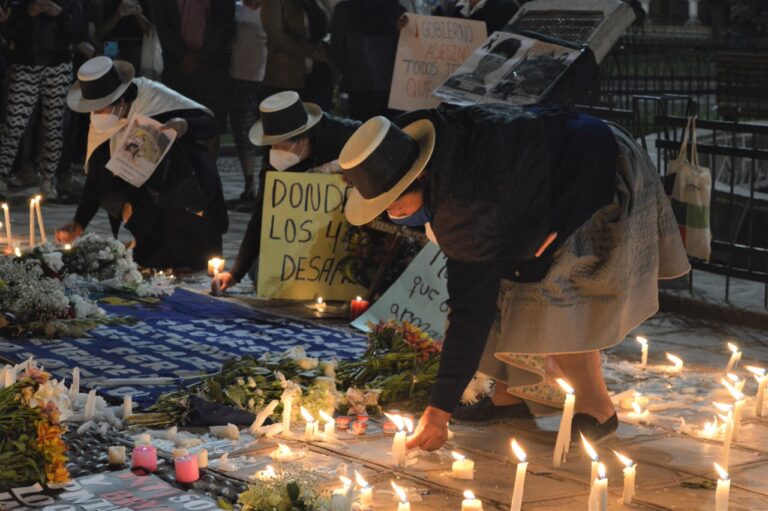
Participants of the Indigenous Communities and Transitional Justice project answer some questions regarding what can be done to overcome obstacles that prevent Indigenous communities from fully participating in transitional justice processes in diverse countries.
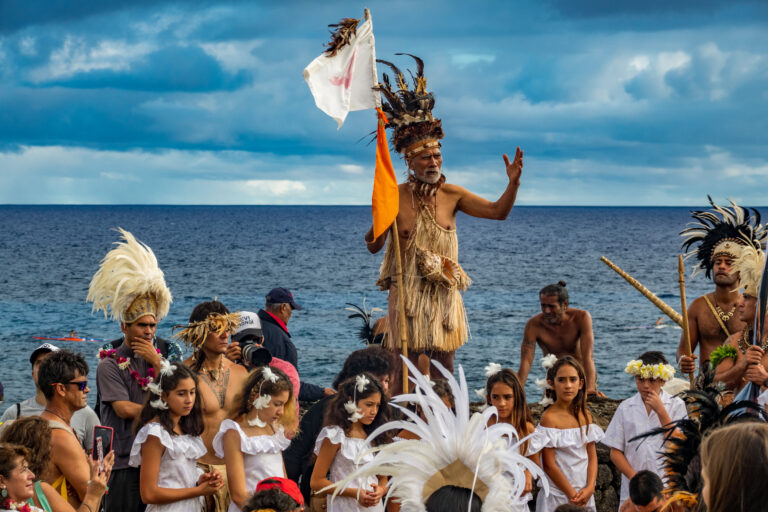
Indigenous Communities and Transitional Justice
Participants of the Indigenous Communities and Transitional Justice project answer some questions regarding what can be done to overcome obstacles that prevent Indigenous communities from fully participating in transitional justice processes in diverse countries.
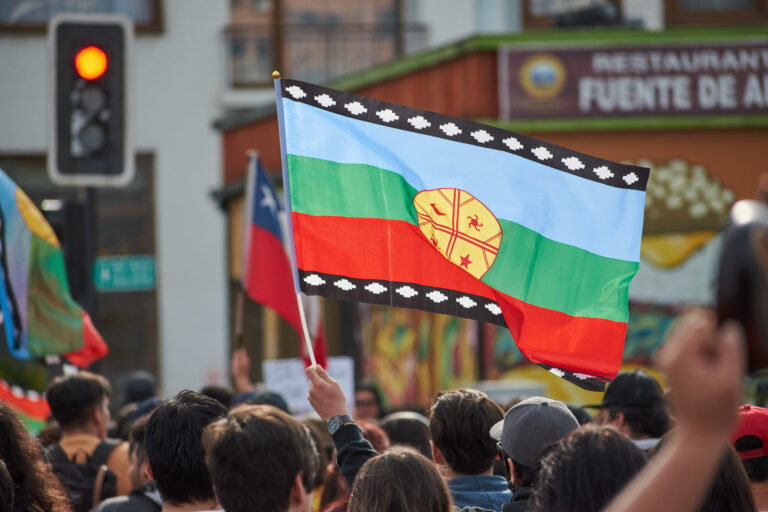
Comunidades Indígenas y Justicia Transicional
Los participantes del proyecto Comunidades Indígenas y Justicia Transicional responden algunas preguntas sobre qué se puede hacer para superar los obstáculos que impiden a las comunidades indígenas participar plenamente en los procesos de justicia transicional en diversos países.
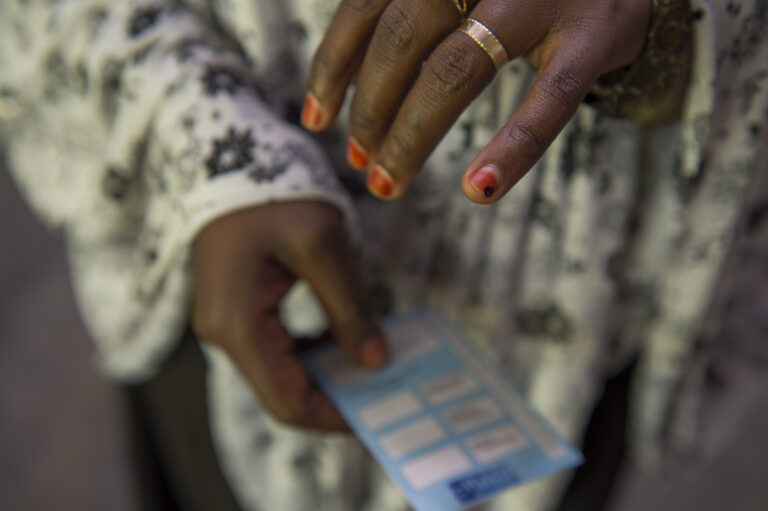
Communautés autochtones et la justice transitionnelle
Les participants au projet sur les communautés autochtones et la justice transitionnelle répondent à certaines questions sur ce qui peut être fait pour surmonter les obstacles qui empêchent les communautés autochtones de participer pleinement aux processus de justice transitionnelle dans divers pays.
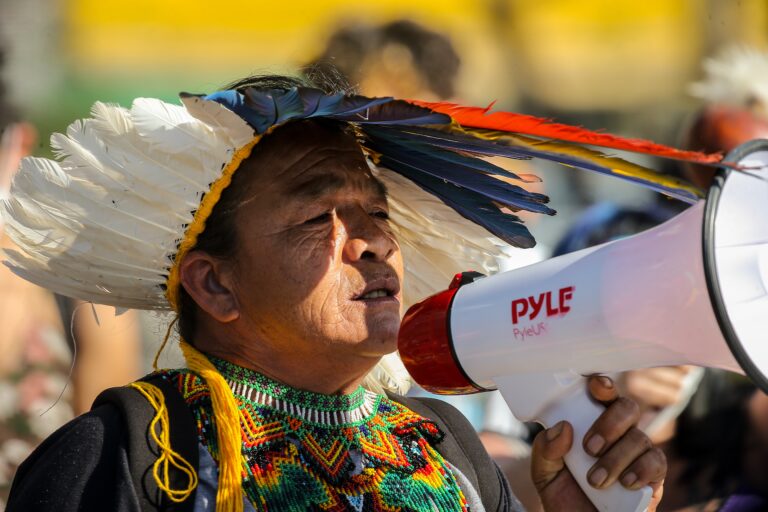
Comunidades indígenas e justiça transicional
Os participantes do projeto comunidades indígenas e justiça transicional respondem a algumas perguntas sobre o que pode ser feito para superar os obstáculos que impedem as comunidades indígenas de participar plenamente nos processos de justiça transicional em diversos países.


